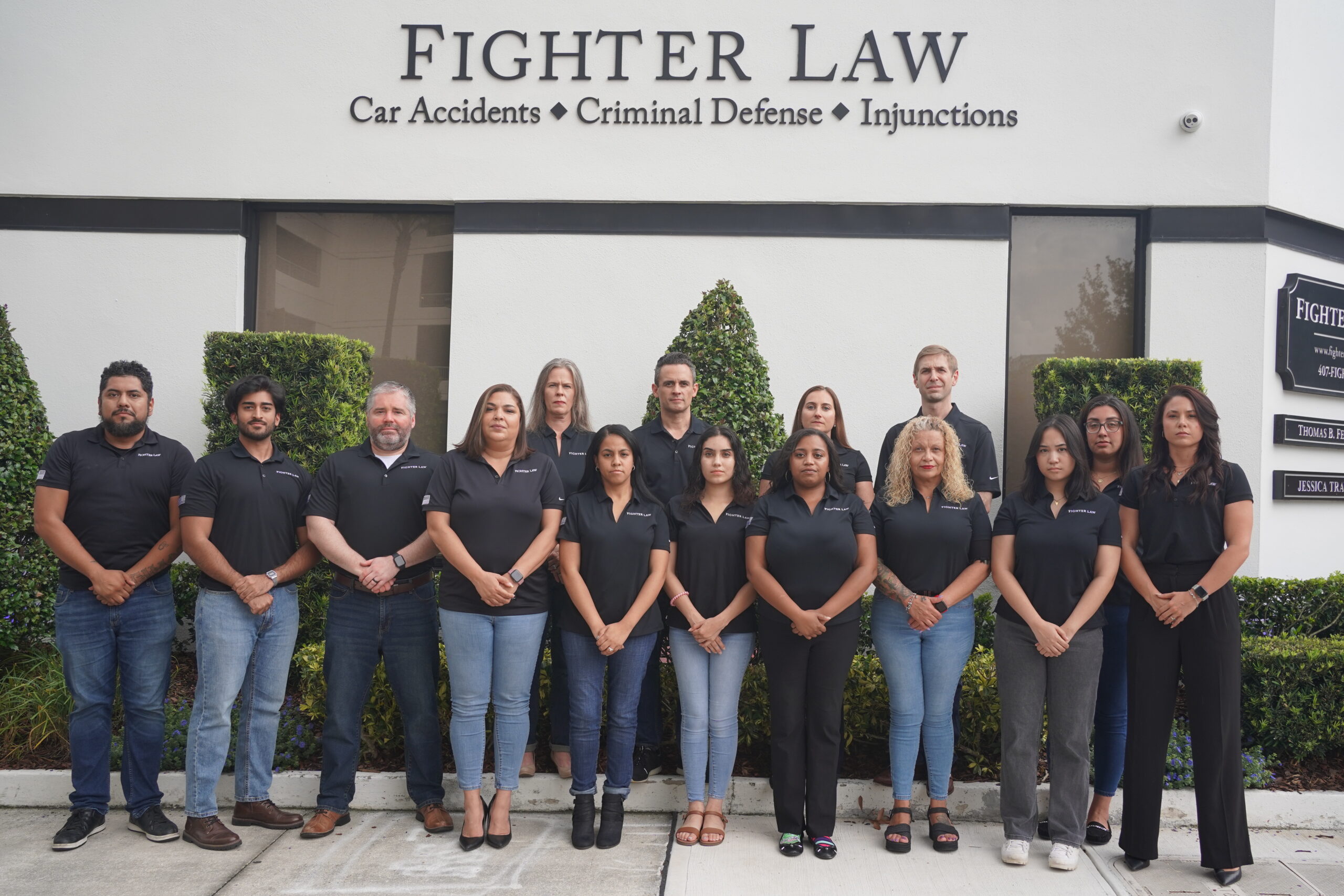Types of Criminal Pleas
Types of Pleas in Florida Criminal Law
When facing criminal charges in Florida, one of the most important decisions you’ll make is how to plead. The plea you choose can have a significant impact on the outcome of your criminal case. There are various types of pleas in criminal law, each with distinct legal consequences. Whether you decide to plead guilty, enter a not guilty plea, or opt for a nolo contendere plea, understanding your options is essential to navigating the criminal justice system. This article breaks down the common criminal pleas, how they work, and the potential outcomes for each.
Guilty Plea – Admitting Guilt
A guilty plea is the most straightforward option. When a defendant pleads guilty, they are admitting to the criminal charges against them. In many cases, this plea is entered in exchange for a plea agreement, where the defendant waives certain rights, such as the right to a jury trial, in exchange for a reduced sentence or other favorable terms. However, it’s important to note that pleading guilty is not always the best choice, especially in cases where the criminal defendant believes they can successfully challenge the evidence or the charges.
While some defendants might choose to plead guilty because it seems like the quickest path to resolution, doing so can come with serious consequences, including a criminal record. Before making this decision, it’s critical to consult with an experienced criminal defense attorney who can evaluate the strength of the case and advise on the best course of action. A guilty plea will often lead to a criminal conviction, which can affect employment, travel, and even housing opportunities.
Not Guilty Plea – Asserting Your Rights
A not guilty plea is perhaps the most common plea in criminal cases. It allows the criminal defendant to assert their rights and contest the criminal charges against them. By entering a not guilty plea, the defendant denies the allegations and forces the prosecution to prove the case beyond a reasonable doubt. This plea gives the defense more time to assess the evidence, build a defense, and explore the possibility of negotiating a plea deal.
In some instances, criminal defendants may plead not guilty even if they believe they are guilty of the offense. This allows them to fully understand the evidence the prosecution has against them before making any decisions. The criminal justice system allows for this strategic move because the defendant asserts their right to a fair trial, where the prosecution must meet its burden of proof. By pleading not guilty, a defendant opens the door for potential dismissal of charges, or the case may be resolved through plea negotiations.
The Nolo Contendere Plea – No Contest
A plea of nolo contendere, commonly referred to as a nolo contendere plea, is a unique type of plea in criminal procedure. With this plea, the defendant neither admits nor denies the charges but agrees to accept the consequences as if they had pleaded guilty. While a nolo contendere plea doesn’t directly admit guilt, it still results in a criminal conviction. This type of plea is often used when the defendant doesn’t want to admit guilt but wants to avoid the uncertainty and costs associated with a jury trial.
One important consideration when entering a nolo contendere plea is that it may be treated the same as a guilty plea in many circumstances. For example, a nolo contendere plea may result in a criminal record and can be used against the defendant in civil lawsuits related to the same incident. It’s essential for criminal defendants to understand the legal implications of such a plea before proceeding.
Alford Plea – A Complex Legal Option
An Alford plea is a specialized form of guilty plea where the defendant pleads guilty but denies admitting guilt. In an Alford plea, the defendant asserts that they are entering the plea to avoid the risk of a jury trial and the possible harsher punishment but maintains their innocence. This plea allows the court to accept the guilty plea, despite the defendant denying the allegations.
The Alford plea can be beneficial in situations where the evidence against the defendant is strong, but they still wish to contest the charges in principle. While it may provide some legal benefits, such as avoiding a lengthy trial, it’s important to note that the criminal justice system may treat an Alford plea similarly to a guilty plea, leading to a criminal conviction.
Plea Deals and Plea Negotiations in Criminal Cases
In many criminal cases, a plea deal is reached between the prosecution and the defense before the case goes to trial. Plea negotiations are a key part of the criminal justice system and allow both sides to avoid the uncertainty of a jury trial. During plea negotiations, the defense and prosecution discuss possible terms, such as reducing charges, minimizing penalties, or agreeing to alternative sentencing options like community service.
Plea deals can be particularly advantageous for defendants facing serious charges. By accepting a plea agreement, the defendant might receive a lighter sentence, reduced charges, or avoid certain mandatory penalties. However, it’s crucial to carefully consider the terms of the agreement with the guidance of an experienced criminal defense attorney. A plea of guilty or no contest typically results in a criminal conviction, so it’s important to weigh the pros and cons before making a final decision.
When Is It Time to Plead Not Guilty?
If you believe you have a strong defense or that the prosecution lacks sufficient evidence, pleading not guilty is often the best choice. A not guilty plea allows the defendant to challenge the charges and put the burden of proof on the prosecution. If the case proceeds to trial, the defense will work to show that the criminal charges are unsubstantiated or that the prosecution’s case fails to meet the legal standard of reasonable doubt.
It is also important to remember that not guilty pleas are not necessarily permanent. Defendants may still choose to accept a plea deal at any time during the proceedings if they believe it is in their best interest. However, pleading not guilty is a strategic move that allows for a comprehensive review of the case, including discovery and evidence evaluation.
Click here to read more about withdrawing a criminal plea
Why You Need an Experienced Criminal Defense Attorney
Whether you’re considering a guilty plea, a not guilty plea, or a nolo contendere plea, having an experienced criminal defense attorney by your side is crucial. A seasoned attorney will guide you through plea negotiations, evaluate the strength of the prosecution’s case, and provide insight into the potential consequences of different types of pleas. With the right legal support, you can make informed decisions that protect your rights and achieve the best possible outcome in your criminal case.
A skilled attorney can also help you navigate complex legal procedures and avoid common pitfalls in the criminal justice process. Whether you’re facing misdemeanor or felony charges, having an advocate who understands criminal law is essential to securing a fair resolution.
Contact Our Orlando Criminal Defense Attorney For Legal Help
Choosing the right criminal plea is a critical decision in any criminal case. Each plea type, whether it’s a guilty plea, nolo contendere plea, or not guilty plea, has its own set of implications for the defendant. Understanding the consequences of each option is crucial, and having an experienced criminal defense attorney can make a significant difference in the outcome of your case.
Ready to make the right choice for your legal situation? Whether you’re facing criminal charges or seeking clarity on your options, our experienced Orlando criminal defense attorney is here to support you. Contact us today for expert guidance for your case. Your peace of mind and a strong defense are just a call away! Our attorneys, led by Board-Certified Attorney Thomas Fighter, dedicate themselves to fighting for our clients. To schedule a free consultation, call (407) 214-0573 or complete our contact form.
Frequently Asked Questions About Criminal Pleas
What are the most common types of pleas in criminal court?
In criminal court, the most common types of pleas are guilty, not guilty, and no contest (nolo contendere). A guilty plea means the defendant admits to the charges, while a not guilty plea denies them. A no-contest plea is when the defendant neither admits nor denies the charges but agrees to the punishment without a formal admission of guilt.
What is the difference between pleading guilty and pleading no contest?
A guilty plea means the defendant admits to committing the crime, which results in a criminal conviction. A nolo contendere plea (or no contest plea) means the defendant does not admit guilt but accepts the punishment. The main difference is that a no contest plea cannot be used against the defendant in a civil lawsuit related to the same incident, unlike a guilty plea.
Can I withdraw a guilty plea after entering it?
In some cases, it may be possible to withdraw a guilty plea if the court allows it. This can occur if the defendant believes they entered the plea under duress or if they did not fully understand the consequences. However, withdrawing a plea can be a complex process and may require showing that the plea was not entered voluntarily or with full knowledge of the legal consequences.
What happens if I plead not guilty?
When a defendant pleads not guilty, the case will proceed to trial unless the parties reach a plea agreement or settlement beforehand. This plea allows the **defendant to contest the criminal charges and forces the prosecution to prove its case beyond a reasonable doubt. In many cases, pleading not guilty provides the defendant with the opportunity to explore defenses, review the evidence, and negotiate a potential plea deal.
What is the Alford plea and when is it used?
An Alford plea is a type of guilty plea where the defendant maintains their innocence but acknowledges that the evidence against them is strong enough that a conviction is likely. This plea allows the defendant to plead guilty without explicitly admitting guilt, often to avoid a jury trial or to receive a reduced sentence. It is generally used when the defendant believes that pleading guilty may be the best option despite not admitting to the crime.
free case evaluation
Fill out the form below for an free evaluation of your case.
Crimes and Defenses in Florida

Practice Areas
Learn more about our services in Criminal Defense, Personal Injury, and Injunctions.

We Fight for Outstanding Case Results
We are driven to get you results. Review the outcomes on recent cases we've handled.


